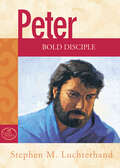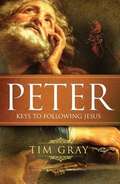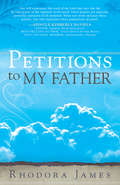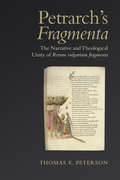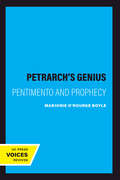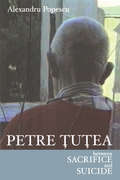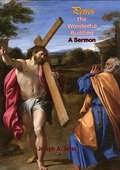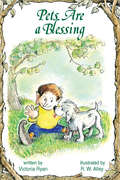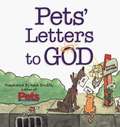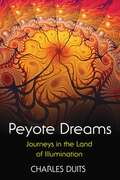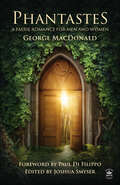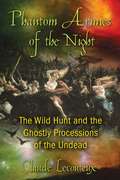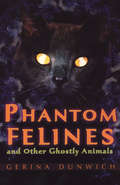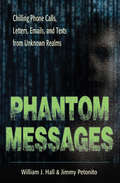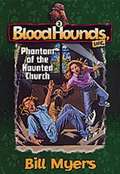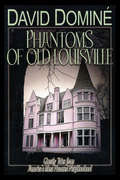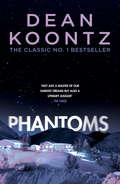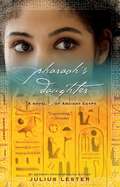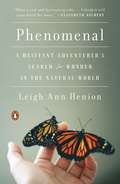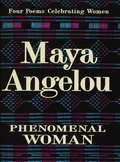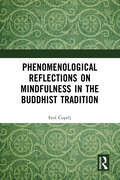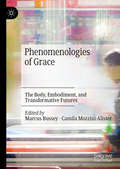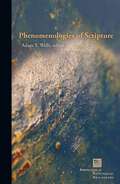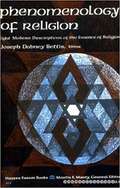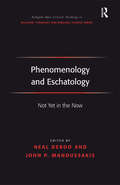- Table View
- List View
Peter: Bold Disciple (God's People)
by Stephen M LuchterhandWho was Peter in the Bible?One of Jesus’ twelve disciples, Peter’s story is one that is sure to interest all Christians. Follow Peter through his personal encounters with Jesus, his bold professions of faith, and his spiritual journey from a fisherman to a “fisher of men.”As you read this book, you’ll discover familiar shortcomings that you might struggle with from time to time as well: lacking trust in God, denying Jesus in moments of pressure, and putting your own wants before God’s expectations for you. And you’ll be comforted by the same love and grace that Jesus showed to Peter and now to you.You’ll also learn about Peter’s mission following Jesus’ ascension and how that same mission applies to your life today.If you’re wondering who Peter was, or want to know how Peter’s faith journey impacts your own, this book is for you!Peter is part of the God’s People series by Northwestern Publishing House. It’s a wonderful collection about the lives and times of some of God’s chosen people. Plots and settings have been taken directly from the Bible, and each book features beautifully detailed, full-color illustrations.
Peter: Keys to Following Jesus
by Tim GrayRenowned scholar Dr. Tim Gray masterfully guides you through the tumultuous and inspiring life of Peter--from his call to discipleship to his eventual martyrdom in Rome. Using Sacred Scripture and tradition, Dr. Gray highlights these important lessons from Peter's life.
Petitions to My Father
by Rhodora JamesAre you brokenhearted? Do you often feel left behind, left out, or forgotten? Author Rhodora James spent much of her life dealing with these issues; then she began to relentlessly penetrate the heavens with detailed, passionate prayers. today, this woman of God has received her breakthrough, and shares her Petitions to My Father to help you do the same.Stand firm in your faith; God has not forsaken you. He alone has the power to heal, comfort, and resotre you. Petitions to My Father will inspire you to persevere, and to keep praying until you receive your breakthrough. Whether your needs are physical or emotional, these incredibly powerful, life-changing prayers will set you on the path toward heavenly peace and wholeness.
Petrarch's 'Fragmenta': The Narrative and Theological Unity of 'Rerum vulgarium fragmenta'
by Thomas E PetersonPetrarch's Rerum vulgarium fragmenta, a collection of lyric poems on sacred and profane love and other subjects, has traditionally been viewed as reflecting the conflicted nature of its author. However, award winning author Thomas E. Peterson argues that Petrarch's Fragmenta is an ordered and coherent work unified by narrative and theological structures.By concentrating on the poem's reliance on Christian tenets and distinguishing between author, narrator and character, Peterson exposes the underlying narrative and theological unity of the work. Building on recent Petrarch scholarship and broader studies of medieval poetics, poetic narrativity, and biblical intertextuality, Peterson conducts a rigorous examination of the Fragmenta's poetic language. This combination of stylistic and philological analysis recasts Petrarch's poetry in a new light revealing its radically innovative and liberating character.
Petrarch's Genius: Pentimento and Prophecy
by Marjorie O'Rourke BoyleMarjorie Boyle is the first theologian to write about Petrarch the poet as theologian. With her extraordinarily broad and deep knowledge of the theological, historical, and literary contexts of her subject, she presents an entirely original and revisionary account of Petrarch's literary career.Petrarch, she argues, has been misunderstood by the division of his literary enterprise into two sides—Petrarch the poet, Petrarch the humanist reformer—studied by literary critics and historians respectively. Boyle demonstrates that the division is artificial, that the two sides are part of the same prophetic mission. Petrarch's Genius is an important book that deserves to be read by all Petrarch scholars—theologians as well as literary critics and historians.
Petre Tutea: Between Sacrifice and Suicide
by Alexandru PopescuPetre Tutea (1902-91) was one of the outstanding Christian dissident intellectuals of the Communist era in Eastern Europe. Revered as a saint by some, he spent thirteen years as a prisoner of conscience and twenty-eight years under house arrest at the hands of the Securitate. This book explores his unique response to the horrors of torture and 're-education' and reveals the experience of a whole generation detained in the political prisons. Tutea’s understanding of human needs and how they can be fulfilled even amidst extreme adversity not only reflects huge learning and great brilliance of mind, but also offers a spiritual vision grounded in personal experience of the Romanian Gulag. Following the fall of the Ceausescus, he has begun to emerge as a significant contributor to ecumenical Christian discourse and to understanding of wider issues of truth and reconciliation in the contemporary world.  As Tutea's pupil and scribe for twelve years, as a psychiatrist, and as a theologian, Alexandru Popescu is uniquely placed to present the work of this twentieth-century Confessor of the faith. Drawing on bibliographical sources which include unpublished or censored manuscripts and personal conversations with Tutea and with other prisoners of conscience in Romania, Popescu presents extensive translations of Tutea, which make his thought accessible to the English-speaking reader for the first time.  Through his stature as a human being and his authority as a thinker, Petre Tutea challenges us to question many of our assumptions. The choice he presents between ’sacrifice’ and ’moral suicide’ focuses us on the very essence of religion and human personhood. Resisting any ultimate separation of theology and spirituality, his work affirms hope and love as the sole ground upon which truth can be based. At the same time, hope and love are not mere ideal emotions, but are known and lived in engagement with the real world - in politics, economics, science, ecol
Petros the Wonderful Building - A Sermon
by Joseph A. SeissExplore the profound spiritual and symbolic significance of one of Christianity's foundational figures with Joseph A. Seiss's Petros: The Wonderful Building - A Sermon. This insightful and eloquent sermon delves into the life and legacy of the Apostle Peter, illuminating his pivotal role in the establishment of the Christian Church.Joseph A. Seiss, a distinguished theologian and preacher, presents a deeply thoughtful analysis of Peter, whose name means "rock," as a cornerstone of the faith. In Petros: The Wonderful Building, Seiss examines the biblical narratives and theological implications surrounding Peter, shedding light on his transformation from a humble fisherman to a central figure in the early Christian community.The sermon explores Peter's strengths and weaknesses, his moments of doubt and faith, and his ultimate dedication to the mission entrusted to him by Jesus Christ. Seiss eloquently articulates how Peter's journey embodies the essence of spiritual growth and steadfastness, serving as an enduring example for believers.Petros: The Wonderful Building also delves into the metaphorical and prophetic significance of Peter's role in the "building" of the Church. Seiss connects Peter's experiences and teachings to the broader framework of Christian doctrine, emphasizing the importance of faith, perseverance, and divine grace in the life of the Church and its members.This work is an essential read for theologians, clergy, and anyone interested in deepening their understanding of apostolic foundations and the spiritual heritage of Christianity. Seiss’s powerful and inspiring words offer a fresh perspective on Peter’s legacy, inviting readers to reflect on their own faith journeys.
Pets Are a Blessing
by R. W. Alley Victoria RyanThis new book from the Elf family celebrates the many ways pets enrich our lives and the gifts, both simple and profound, they offer. These affirmations are sure to bring a smile of recognition, a seed of new thought, and a renewed awe of God's wisdom in creation, all reminders of the blessing your pet has been for you.
Pets' Letters to God
by Mark BricklinTaken From the Back Cover: "Humans aren't the only ones who grapple with the great mysteries of the universe. As you'll discover in these profound and heartwarming pages, all of God's creatures -- dogs, cats, fish, and more - look at their huge and awe-inspiring world and ask themselves 'Why?' Why is there thunder? Does Heaven have a scent? Why don't people sniff each other?"
Peyote Dreams: Journeys in the Land of Illumination
by Charles DuitsA detailed account of the transformation of consciousness and discovery of life’s purpose brought on by peyote • Shows how peyote and other visionary plants do not distort reality but gloriously unveil it, pulling the mind out of its cosmic slumber and revealing our unity with all life • Explains the necessity when working with peyote to remain the master of one’s mind and consciously work on oneself • Examines how modern society’s revulsion to sacramental plants and other consciousness expanders is deeply rooted in Western philosophy Charles Duits was caught in the grip of a dead-end existential and spiritual crisis. At the urging of one of his oldest friends, he takes peyote “like a man committing suicide,” launching him on a visionary journey of philosophical examination and spiritual revelation. In this little-known classic of drug literature, we find a detailed account of the radical alteration of consciousness and discovery of life’s purpose brought on by the Mexican cactus known as peyote. Consuming peyote more than 200 times, Duits lucidly describes the transformation of reality he experienced as well as the necessity to consciously work on oneself and remain the master of one’s mind in order to avoid getting carried away by hallucinations. The author examines how modern society’s revulsion to sacramental plants and other consciousness expanders is deeply rooted in Western philosophy’s embrace of reason and materialism at the expense of inner knowledge. He explains how sacramental plants do not distort reality as many fearfully believe but gloriously unveil it, pulling the mind out of its cosmic slumber and revealing a world that is finally real and full of meaning. Poetic yet precise, Duits’s descriptions of his peyote experiences offer a glimpse in to the beautiful divine reality of which we are all a part, yet over which the structures of society cast a veil. This guide to “sailing the inner sea” reveals that the answers to the meaning of life lie not in material pursuits but in experiencing the richness and unity of the world in front of us.
Phantastes: A Faerie Romance for Men and Women
by George MacDonald“Whatever the book you are reading now, you simply must get this at once.” —C. S. Lewis Shun the Ash and the Alder… Sing to the Marble Lady… Enter the door of the Timeless… After Anodos is visited by a fairy on his 21st birthday, his bedroom transforms into a forest, leading him to Fairy Land. With the guidance of fairies and knights, he must navigate ethereal and fantastical landscapes, face threats of evil trees and giants, search for a lost love, and conquer his own haunting shadow. One of the earliest works of portal fantasy and an inspiration to the great fantasy authors of the twentieth century! Transport yourself into a tale of love and self-discovery with this fine new edition of Phantastes by George MacDonald, with an additional foreword by author Paul Di Filippo.
Phantom Armies of the Night: The Wild Hunt and the Ghostly Processions of the Undead
by Claude LecouteuxAn exploration of the many forms of the ancient myth of the Wild Hunt and its influence in pagan and early Christian Europe • Recounts the myriad variations of this legend, from the Cursed Huntsman and King Herla to phantom armies and vast processions of sinners and demons • Explains how this belief was an integral part of the pagan worldview and was thus employed by the church to spread Christian doctrine • Reveals how the secret societies of medieval Europe reenacted these ghostly processions for soul travel and prophecies of impending death Once upon a time a phenomenon existed in medieval Europe that continuously fueled local lore: during the long winter nights a strange and unknown troop could be heard passing outside over the land or through the air. Anyone caught by surprise in the open fields or depths of the woods would see a bizarre procession of demons, giants, hounds, ladies of the night, soldiers, and knights, some covered in blood and others carrying their heads beneath their arms. This was the Wild or Infernal Hunt, the host of the damned, the phantom army of the night--a theme that still inspires poets, writers, and painters to this day. Millennia older than Christianity, this pagan belief was employed by the church to spread their doctrine, with the shapeshifters' and giants of the pagan nightly processions becoming sinners led by demons seeking out unwary souls to add to their retinues. Myth or legend, it represents a belief that has deep roots in Europe, particularly Celtic and Scandinavian countries. The first scholar to fully examine this myth in each of its myriad forms, Claude Lecouteux strips away the Christian gloss and shows how the Wild Hunt was an integral part of the pagan worldview and the structure of their societies. Additionally, he looks at how secret societies of medieval Europe reenacted these ghostly processions through cult rituals culminating in masquerades and carnival-like cavalcades often associated with astral doubles, visions of the afterlife, belief in multiple souls, and prophecies of impending death. He reveals how the nearly infinite variations of this myth are a still living, evolving tradition that offers us a window into the world in which our ancestors lived.
Phantom Felines And Other Ghostly Animals
by Gerina DunwichDunwich explores the fascinating phenomenon of animal apparitions, with a special emphasis on cats. Using true tales of animal apparitions from all around the globe, Dunwich reinforces the theory that cats and other animals, like their human counterparts, have spirits that can remain earthbound after death. From cats to dogs to horses, birds and even wild animals, the true tales in this delightful book will give readers a glimpse into a magical world that stretches the boundaries between sight and belief.
Phantom Messages: Chilling Phone Calls, Letters, Emails, and Texts from Unknown Realms
by William J. Hall Jimmy PetonitoHauntings, aliens, and other unexplained phenomena are encountered in strange new ways in this unique investigation into paranormal contact. In Phantom Messages, paranormal investigators William J. Hall and Jimmy Petonito examine stories of unexplained contact by phone, computer, TV, radio, letter, and other mediums. These messages come from a variety of mysterious sources, from loved ones who never sent them to extraterrestrials, deceased friends, and bizarre beings from the past or future. There are recordings of what seem to be future events in progress, and messages from people who lived centuries in the past. Some feature predictions, or warnings, that are eerily accurate. As Hall and Petonito attempt to unravel these impossible communications, they share real life paranormal messages of hope, terror, time slips, and wonder.
Phantom of the Haunted Church (Bloodhounds, Inc. #3)
by Bill MyersSean and Melissa continue their sibling banter even as they are caught up in a dangerous search for a treasure hidden somewhere in the old, supposedly haunted, church that the town is planning to auction.
Phantoms of Old Louisville: Ghostly Tales from America's Most Haunted Neighborhood
by David DominéA paranormal investigator and Old Louisville resident explores chilling reports of hauntings among the historic homes of the National Preservation District.The Louisville, Kentucky, neighborhood known as Old Louisville is one of the country&’s largest National Preservation Districts and the largest Victorian-era neighborhood in the country. Beneath the balconies and terraces of the district's Gothic, Queen Anne, and Beaux Arts mansions, current residents trade stories about the strange and unexplained phenomena they encounter in their historic homes.When David Dominé moved into one of these houses, he dismissed local rumors of a resident poltergeist named Lucy. But soon, disembodied footsteps and mysterious odors changed his mind. Now Dominé is one of Louisville&’s best-known investigators of paranormal phenomena.In Phantoms of Old Louisville, Dominé recounts a horrifying encounter at the Spalding Mansion and the long history of the kindly spirit Avery, who guards the iconic Pink Palace. These tales of things that go bump in the night not only reveal why Old Louisville is considered the "most haunted neighborhood in America," but also help to preserve this historically and architecturally significant community.
Phantoms: A chilling tale of breath-taking suspense
by Dean KoontzFor the survivors, what hope is left? Dean Koontz's Phantoms is a story of disaster and suspense that strikes deep fear throughout its journey to the chilling truth. Perfect for fans of Stephen King and Richard Laymon.'Gruesome and unrelenting' - Stephen KingYesterday Snowfield, California, was a charming little town basking in the golden afternoon sun. Today it is a place of nightmare.An ancient, awesome force has spirited away almost the entire population of the town and left the bodies of those remaining bizarrely disfigured. What hope can there be for the few still left alive...? What readers are saying about Phantoms: 'This is one of the best horror stories I have ever read''A totally immersive story that will draw you in right from the start''As thrilling as it is truly terrifying it kept me enthralled from start to finish'
Pharaoh's Daughter: A Novel of Ancient Egypt
by Julius LesterBorn into slavery, adopted as an infant by a princess, and raised in the palace of mighty Pharaoh, Moses struggles to define himself. And so do the three women who love him: his own embittered mother, forced to give him up by Pharaoh's decree; the Egyptian princess who defies her father and raises Moses as her own child; and his headstrong sister Almah, who discovers a greater kinship with the Egyptian deities than with her own God of the Hebrews. Told by Moses and his sister Almah from alternating points of view, this stunning novel by Newbery Honor-author Julius Lester probes questions of identity, faith, and destiny.
Phenomenal
by Leigh Ann HenionElizabeth Gilbert, author of The Signature of All Things and Eat, Pray, Love "What a cool and fascinating ride. Leigh Ann Henion has tackled one of the great questions of contemporary, intelligent, adventurous women: Is it possible to be a wife and mother and still explore the world? Her answer seems to be that this is not only possible, but essential. This story shows how. I think it will open doors for many." Heartfelt and awe-inspiring, Leigh Ann Henion's Phenomenal is a moving tale of physical grandeur and emotional transformation, a journey around the world that ultimately explores the depths of the human heart. A journalist and young mother, Henion combines her own varied experiences as a parent with a panoramic tour of the world's most extraordinary natural wonders. Phenomenal begins in hardship: with Henion deeply shaken by the birth of her beloved son, shocked at the adversity a young mother faces with a newborn. The lack of sleep, the shrinking social circle, the health difficulties all collide and force Henion to ask hard questions about our accepted wisdom on parenting and the lives of women. Convinced that the greatest key to happiness--both her own and that of her family--lies in periodically venturing into the wider world beyond home, Henion sets out on a global trek to rekindle her sense of wonder. Henion's quest takes her far afield, but it swiftly teaches her that freedom is its own form of parenting--one that ultimately allows her to meet her son on his own terms with a visceral understanding of the awe he experiences every day at the fresh new world. Whether standing on the still-burning volcanoes of Hawai'i or in the fearsome lightning storms of Venezuela, amid the vast animal movements of Tanzania or the elegant butterfly migrations of Mexico, Henion relates a world of sublimity and revelation. Henion's spiritual wanderlust puts her in the path of modern-day shamans, reindeer herders, and astrophysicists. She meets laypeople from all over the world, from all walks of life, going to great lengths to chase migrations, auroras, eclipses, and other phenomena. These seekers trust their instincts, follow their passions, shape their days into the lives they most want to lead. And, somewhere along the way, Leigh Ann Henion becomes one of them. A breathtaking memoir, Phenomenal reveals unforgettable truths about motherhood, spirituality, and the beauty of nature.Oprah.com"Part travel memoir, part parenting manifesto and part inquiry into those 'fleeting, extraordinary glimpses of something that left us groping for rational explanations in the quicksand of all-encompassing wonder.'"From the Hardcover edition.
Phenomenal Woman: Four Poems Celebrating Women
by Maya AngelouA collection of beloved poems about women from the iconic Maya AngelouThese four poems, &“Phenomenal Woman,&” &“Still I Rise,&” &“Weekend Glory,&” and &“Our Grandmothers,&” are among the most remembered and acclaimed of Maya Angelou's poems. They celebrate women with a majesty that has inspired and touched the hearts of millions.&“Phenomenal Woman&” is a phenomenal poem that speaks to us of where we are as women at the dawn of a new century. In a clear voice, Maya Angelou vividly reminds us of our towering strength and beauty.
Phenomenological Reflections on Mindfulness in the Buddhist Tradition
by Erol ČopeljThis book offers an original phenomenological description of mindfulness and related phenomena, such as concentration (samādhi) and the practice of insight (vipassanā). It demonstrates that phenomenological method has the power to reanimate ancient Buddhist texts, giving new life to the phenomena at which those texts point. Beginning with descriptions of how mindfulness is encountered in everyday, pre-philosophical life, the book moves on to an analysis of how the Pali Nikāyas of Theravada Buddhism define mindfulness and the practice of cultivating it. It then offers a critique of the contemporary attempts to explain mindfulness as a kind of attention. The author argues that mindfulness is not attention, nor can it be understood as a mere modification of the attentive process. Rather, becoming mindful involves a radical shift in perspective. According to the author’s account, being mindful is the feeling of being tuned-in to the open horizon, which is contrasted with Edmund Husserl’s transcendental horizon. The book also elucidates the difference between the practice of cultivating mindfulness with the practice of the phenomenological epoché, which reveals new possibilities for the practice of phenomenology itself. Phenomenological Reflections on Mindfulness in the Buddhist Tradition will appeal to scholars and advanced students interested in phenomenology, Buddhist philosophy, and comparative philosophy.
Phenomenologies of Grace: The Body, Embodiment, and Transformative Futures
by Marcus Bussey Camila Mozzini-AlisterThis book explores the place of the body and embodied practices in the production and experience of grace in order to generate transformative futures. The authors offer a range of phenomenologies in order to move the philosophical anchoring of phenomenology from an abstracted European tradition into more open and complex experiential sets of understandings. Grace is a sticky word with many layers to it, and the authors explore this complexity through a range of traditions, practices, and autobiographical accounts. The goal is to open a grace-space for reflection and action that is both futures-oriented and enlivening.
Phenomenologies of Scripture (Perspectives in Continental Philosophy)
by Adam Y. WellsPhenomenologies of Scripture addresses two increasingly convergent disciplines: philosophy and biblical studies. On the one hand, the recent “theological turn” in phenomenology has established religion as a legitimate area of phenomenological inquiry. If that turn is to be enduringly successful, phenomenology must pay attention to the scriptures on which religious life, practice, and thought are based. On the other hand, biblical studies finds itself in a methodological morass. Contemporary approaches to scripture have raised important questions about the meaning and function of scriptural texts that phenomenology is uniquely positioned to answer: How is the meaning of a text constructed or gleaned? How can the divine be present in human words? Is a scientific approach to the Bible still possible? Bringing together essays by eight of today’s most prominent philosophers of religion with responses by two leading biblical scholars, Phenomenologies of Scripture reestablishes the possibility of fruitful, dialectical exchange between fields that demand to be read together.
Phenomenology Of Religion: Eight Modern Descriptions Of The Essence Of Religion (Forum Books Series)
by Joseph D. BettisPhenomenology of Religion: Eight Modern Descriptions of the Essence of Religion
Phenomenology and Eschatology: Not Yet in the Now (Routledge New Critical Thinking in Religion, Theology and Biblical Studies)
by John Panteleimon ManoussakisThis book brings together a world-renowned collection of philosophers and theologians to explore the ways in which the resurgence of eschatological thought in contemporary theology and the continued relevance of phenomenology in philosophy can illuminate each other. Through a series of phenomenological analyses of key eschatological concepts and detailed readings in some of the key figures of both disciplines, this text reveals that phenomenology and eschatology cannot be fully understood without each other: without eschatology, phenomenology would not have developed the ethical and futural aspects that characterize it today; without phenomenology, eschatology would remain relegated to the sidelines of serious theological discourse. Along the way, such diverse themes as time, death, parousia, and the call are re-examined and redefined. Containing new contributions from Jean-Yves Lacoste, Claude Romano, Richard Kearney, Kevin Hart and others, this book is necessary reading for anyone interested in the intersection of contemporary philosophy and theology.
